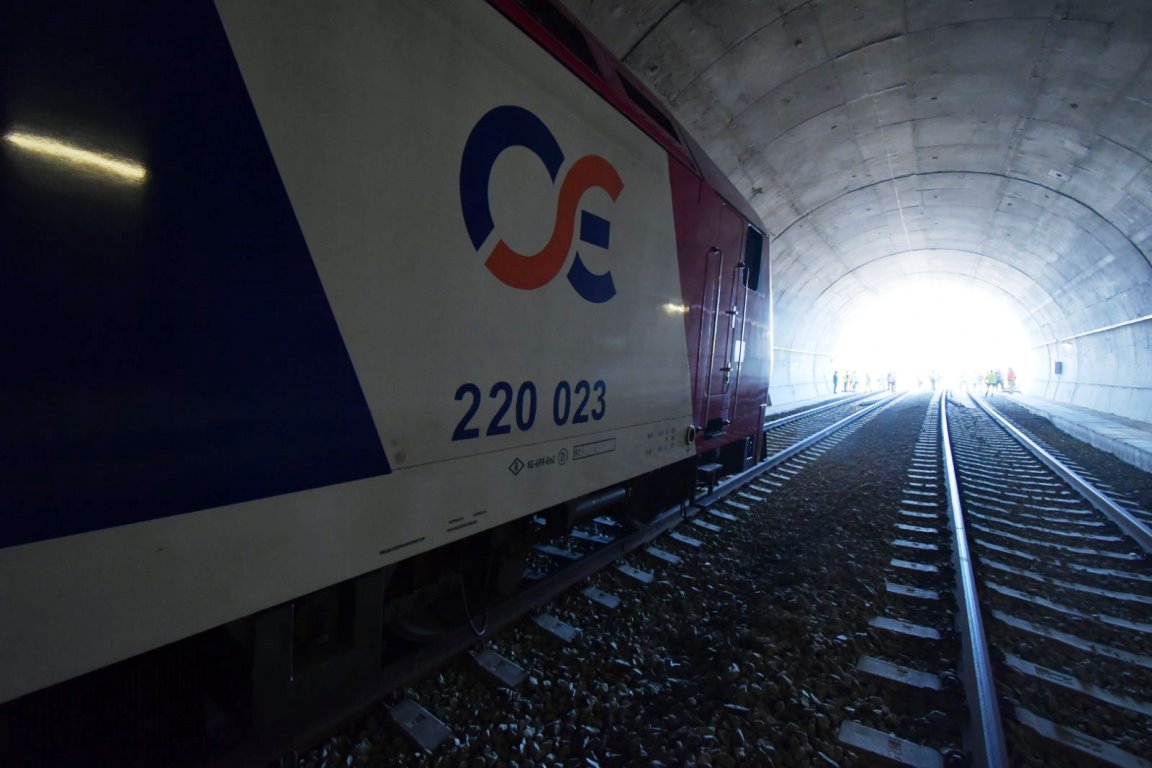Railway engineers call for the renationalisation and reform of Greek railways

In a statement regarding re-nationalisation, they say:
“We denounce the long-standing fragmentation of the railway sector and propose the re-nationalisation of Hellenic Train, merging it into the new railway entity ‘Greek Railways S.A.’ to create a unified public body with separated economic activities, as stipulated by European law. The initial plan by the Ministry for the new company, ‘Greek Railways S.A.,’ which was set to begin in January 2024, aimed to establish an exclusive authority for the design, development, maintenance, and safe management of the country’s railway infrastructure.”
On the current state of the railway system, the union emphasises:
“The shortage of staff in all sectors and specialties is enormous. Of the 2,100 positions approved in the OSE’s organisational chart in May 2022, only 1,250 are filled. Around 550 of these are permanent staff, 100 are temporary workers for level crossing security, and the remaining 600 are staff on service contracts. It is easy to understand the dysfunction caused in the daily operation of the organisation by the simultaneous application of two organisational structures and the existence of employees with three different tiers, each with varying responsibilities, rights, obligations, and pay.”
The long-term neglect of the railway system is evident in the multi-year lack of signalling and centralised control on the network, which has only recently been restored across much of the system. This is coupled with the dramatic reduction in the length of active railway lines, which was 2,500 kilometres 20 years ago but is now around 1,800 kilometres. Furthermore, the number of services has dropped to less than 50% of previous levels, and international connections to Turkey, the Balkans, and Germany have been eliminated.
In European railways, the average number of staff in 2020 was 2.0 employees per kilometre of track, with funding for maintenance at €170,000 per kilometre. In the underfunded Greek system, the figures were 0.5 employees per kilometre, with just €5,000 allocated for maintenance per kilometre. The impact of chronic underfunding and staff shortages is clearly reflected in the performance of the Greek railway network, which accounted for just 0.6% of passenger transport in 2022, compared to the European average of 5.5%. Similarly, the Greek railway’s share of freight transport was 3.2%, while the European average was 16.1%.”
In conclusion, the Union of Professional Engineers of OSE suggests the following proposals:
a) Funding for the maintenance of the railway network should rise to the European average of €170,000 per kilometre of track,
b) Staffing should meet the European average of 2 employees per kilometre of track, consisting of permanent and appropriately trained scientific, administrative, and technical staff.
Despite the ongoing issues and neglect that have plagued the railway system, as well as the loss of public trust (which must be regained as soon as possible), it is clear that the modernisation and expansion of the railway network would bring substantial benefits to Greek society and the economy, provided the railway operates like those in European countries, where it is a safe and reliable means of transport.”
______________________________________________
Are you seeking news from Greece presented from a progressive, non-mainstream perspective? Subscribe monthly or annually to support TPP International in delivering independent reporting in English. Don’t let Greek progressive voices fade.
Make sure to reference “TPP International” and your order number as the reason for payment.